This whole thing started a few months ago when my darling dwarf hamster Duchess started gaining weight rapidly.
Now Duchess lives solo in her cage, so I was puzzled about what was causing her little hamster belly to swell up like a furry balloon.
At first I thought maybe she was just eating too much or getting less exercise on her wheel.
But soon it became clear this was no simple case of hamster chubbiness. Duchess was pregnant!
I was flabbergasted.
How could this be possible?
Duchess doesn’t have a roommate in her cage and I certainly haven’t introduced any male hamsters into her domain.
It had to be a true virgin birth…immaculate hamster conception! Right?
Well, before calling up the Vatican to report this potential hamster messiah, I did some investigating.
Turns out Duchess found a way to outsmart me and get herself pregnant without any help.
Hamsters are crafty little critters and under the right circumstances, a female can retain sperm inside her reproductive tract long enough to fertilize her own eggs later on.
So while rare, it is possible for a lone female hamster to get herself pregnant by using stored sperm from a prior encounter with a male.
Table of Contents
The Science of Self-Pregnancy in Hamsters
Hamsters are known to be monoestrous, which means they only have one estrous cycle per year.
This cycle typically occurs during the summer months, and it’s during this time that female hamsters are capable of getting pregnant by themselves.
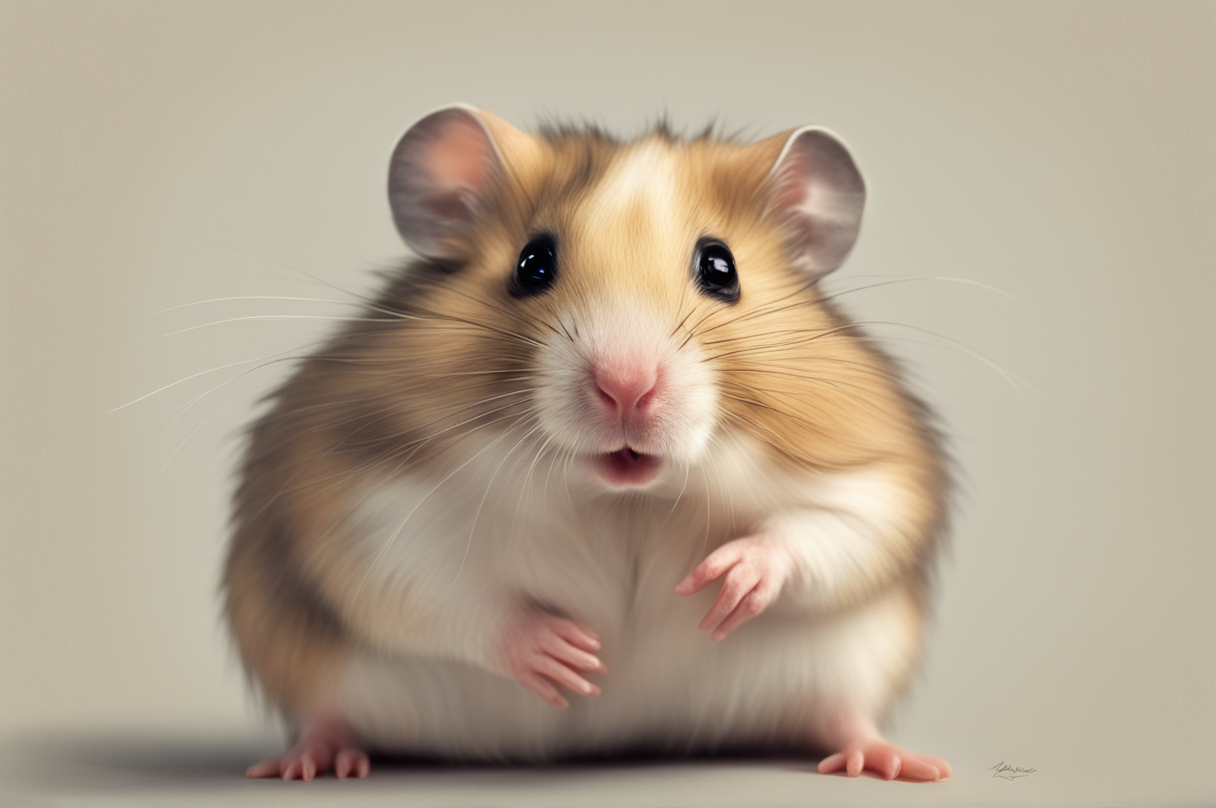
This is because of a phenomenon called delayed fertilization.
Female hamsters are able to store sperm in their reproductive tract for up to four weeks after mating.
So, even if a female hamster doesn’t mate with a male during her estrous cycle, she can still get pregnant if she had previously mated and stored enough sperm.
This means that if you have a female hamster and you’re not planning on breeding her, it’s important to keep her away from males during her estrous cycle.
Otherwise, you might end up with a surprise litter of baby hamsters.
A Closer Look at Hamster Reproduction
To understand how Duchess pulled off this seeming miracle, we need to take a closer look at how hamsters get busy…
Hamsters become sexually mature at around 4-5 weeks old. Females go into heat every 4 days and can get pregnant immediately after giving birth.
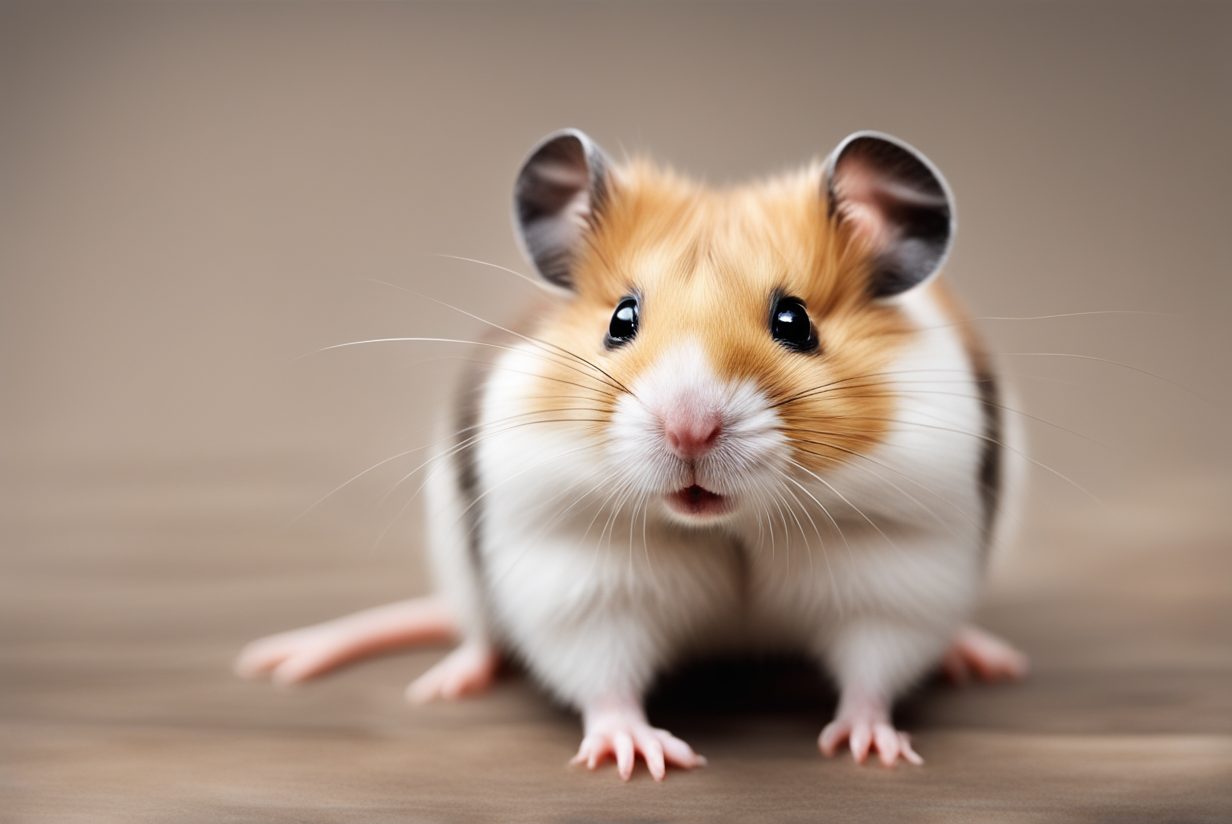
When they mate, male hamsters deposit sperm inside the female which travels up to the uterus and oviducts where it can survive for an extended period.
Female hamsters have a special anatomical feature that allows them to store sperm for days or even weeks before the eggs get fertilized.
They have two uterine horns with small pouches called diverticula that branch off each horn. It’s inside these diverticula that sperm can live for a long time.
Scientists have found viable sperm stored inside the diverticula of female hamsters over 15 days after mating!
The females keep producing eggs while the sperm sits in storage, waiting for the right moment to fertilize. Pretty crazy right?
Some key factors that allow hamsters to store sperm successfully:
- The alkaline environment of the diverticula preserves the sperm.
- The sperm enters a state of torpor to conserve energy.
- The narrow entrance to the pouches limits exposure to the female’s immune system.
So in essence, female hamsters have their own built-in sperm bank! This allows them to control when they get pregnant, even if they mate while not in heat.
Pretty clever reproductive adaptation for these petite rodents!
The Case of the Immaculate Hamster
Now we can solve the mystery of Duchess and her miraculous pregnancy.
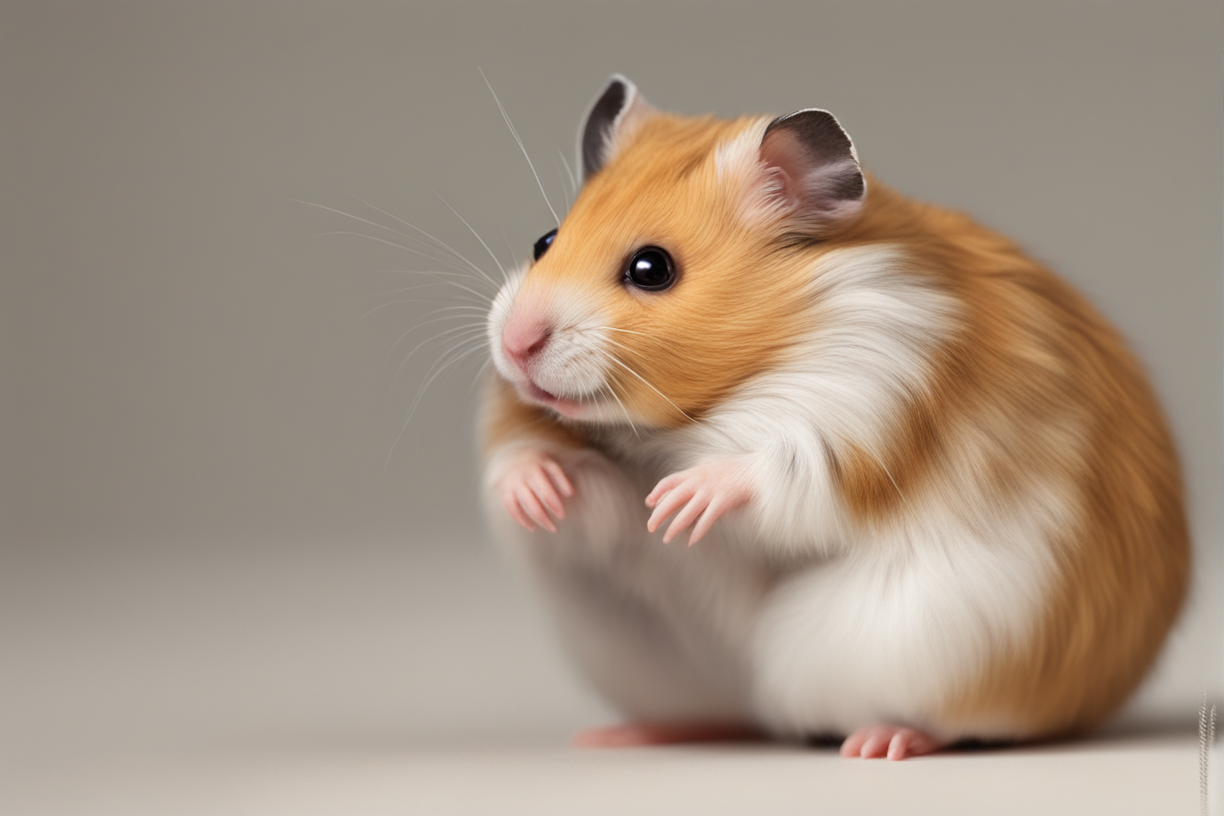
Turns out a couple months before she got pregnant, I had temporarily introduced a male hamster named Phillip into her cage. I was hoping they would get along and I could house them together.
Well, Phillip and Duchess immediately started chasing each other around, nibbling ears, and doing that funny circling hamster mating dance.
Yep, my two little furballs got busy! But after a day Phillip got a bit aggressive with Duchess, so I separated them again.
Here’s where Duchess worked her magic. Even though she wasn’t in heat at the time, Phillip’s sperm survived inside her body for weeks until her next cycle.
Then BOOM – fertilization and pregnancy! Those sly little hamster eggs must have been just waiting to pounce on the stored sperm when the timing was right.
Duchess never showed any signs of pregnancy immediately after being with Phillip. So I assumed their time together didn’t take.
But nope, my clever girl had a stockpile of sperm ready for when her body was ready! And now she’s happily mothering a healthy litter of 7 teeny tiny hamsters.
So friends, the moral of the story is not to underestimate your hamster.
Those little furballs have some tricks up their sleeves! While extremely rare, it is possible for a female hamster to get pregnant using stored sperm without ever being near a male again.
But trust me, I’ll be keeping Duchess far away from any potential hamster boyfriends from now on. Once was enough!
Have You Experienced a “Virgin” Birth?
I’d love to hear if any of you have had a similar experience with a seemingly spontaneous hamster pregnancy.
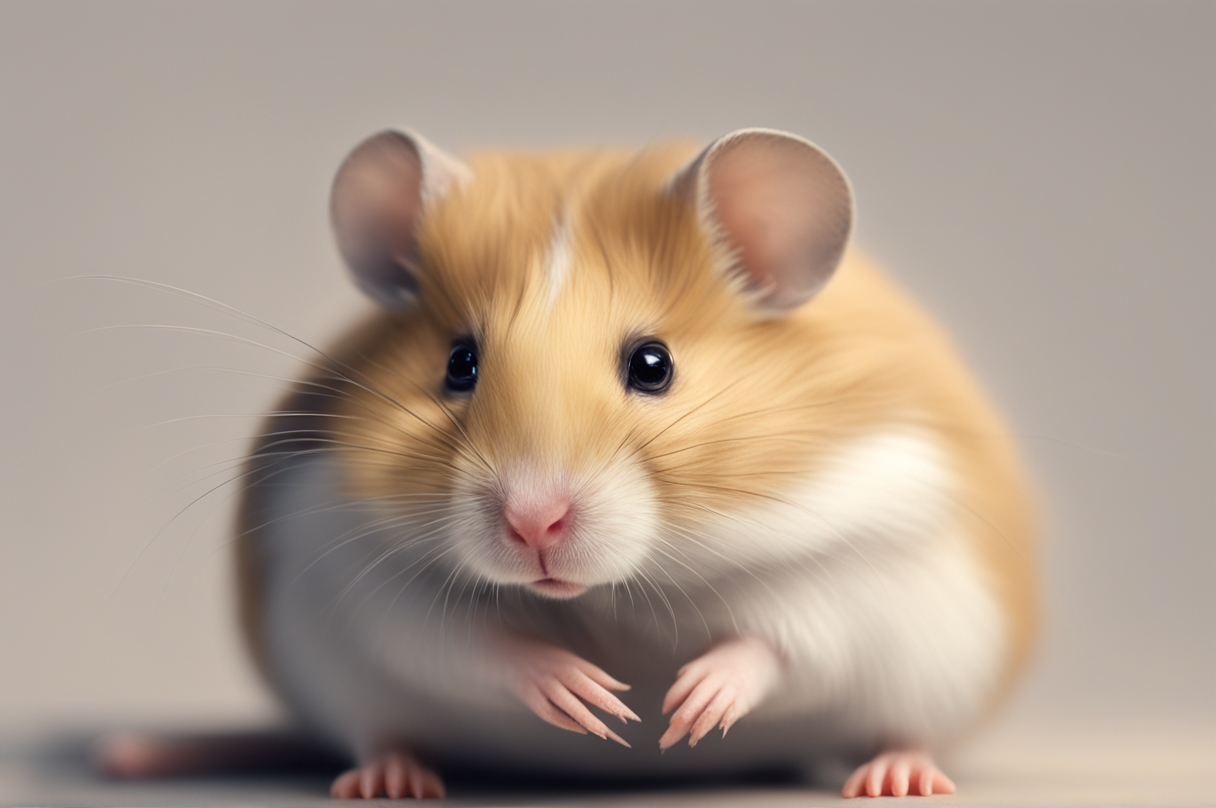
Leave a comment below to share your miraculous hamster tales! Let’s swap stories about our clever little furry friends.
For example, has your female hamster ever:
- Gotten pregnant despite living alone?
- Given birth long after being separated from a male?
- Had a surprise litter even without mating while in heat?
I’m very curious to know if other hamster owners have seen this kind of remarkable virgin conception! Or do you think something else may have caused your hammy’s pregnancy? Share your theory!
I have to admit, I underestimated just how sneaky hamsters are when it comes to reproducing.
But Duchess has taught me that these petite pets are mighty clever when they want to pass on their genes. Never assume a lone female can’t get pregnant on her own – they have their ways!
How to Tell if Your Hamster is Pregnant
If you suspect your female hamster might be expecting a litter, here are some signs to watch out for:
- Rapid weight gain, especially around the abdomen
- Increased appetite
- Sudden decrease in exercise or wheel running
- Enlarged nipples
- Nesting behavior, like gathering bedding
- Territorial, hoarding food in pouches
Hamster pregnancies are short, lasting only 16-18 days. Within two weeks of mating your hammy will start exhibiting pregnancy behaviors as she prepares for her impending motherhood.
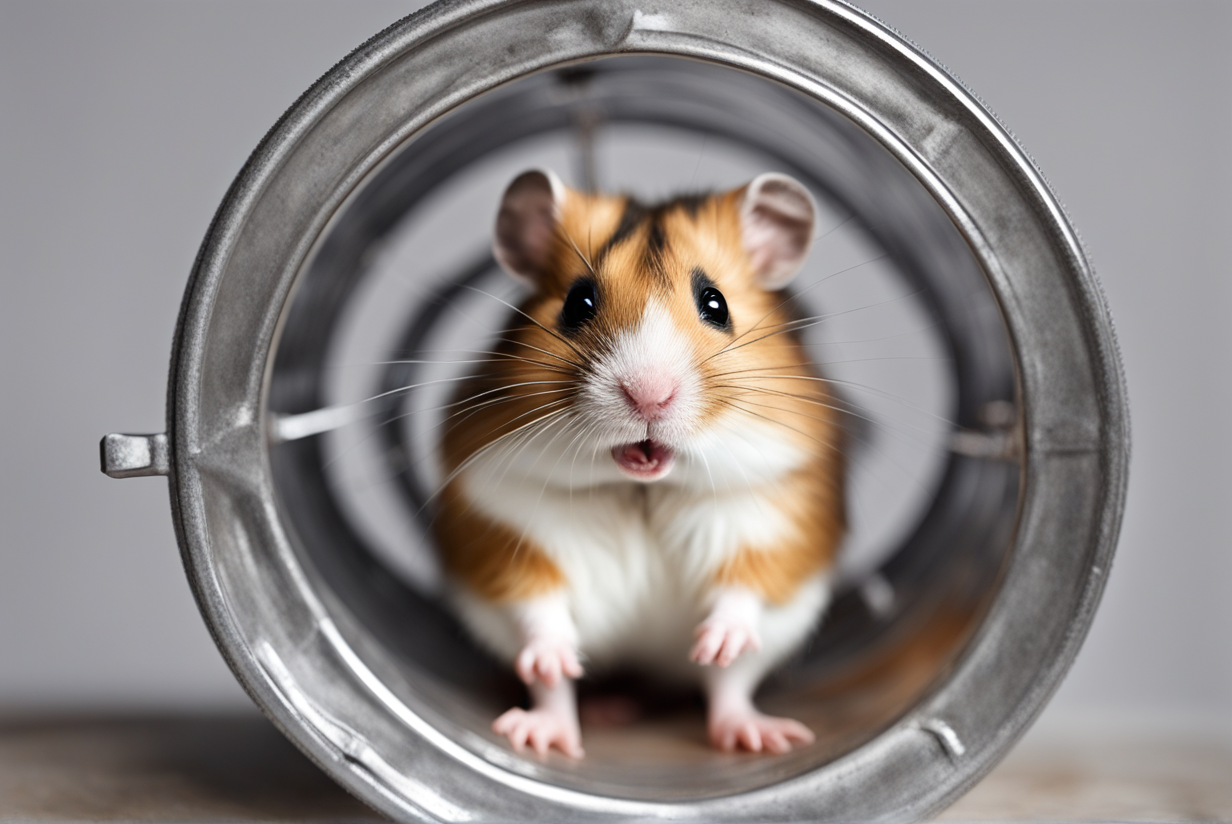
Make sure to supplement your pregnant hamster’s diet with extra protein, vegetables, and calcium.
This will help support the developing pups and keep mama hamster healthy before and after giving birth. Increase the amount of bedding in her cage so she can build an insulated nest.
Be prepared for a surprise litter about 2-3 weeks after your female hamster was around a male. Even if they seem separated, remember sperm can be stored for later fertilization! Keep an eye out for those telltale pregnancy signs.
Caring for a Pregnant Hamster
If you discover your hamster is expecting, here are some tips for caring for a pregnant furball:
- Give her extra protein like cooked egg, chicken, or mealworms daily.
- Provide a mineral stone to nibble on for calcium.
- Increase fruits, veggies, seeds, and fortified hamster food.
- Don’t disturb or handle her unnecessarily.
- Provide 6+ inches of bedding for nest building.
- Keep her cage clean, spot check for wet bedding.
- Have a separate nursing cage ready for mom & babies.
Make sure your expecting hammy has access to plenty of nesting materials. She’ll want to build a warm, cozy nursery for her soon-to-arrive brood. Provide toilet paper, paper towels, or clean hay.
Monitor your pregnant hamster closely as her due date approaches. Contact your vet if she shows signs of trouble like lethargy, poor appetite, or bleeding.
With proper care, most hamster pregnancies go smoothly resulting in a lively litter!
Caring for Newborn Hamsters
Baby hamsters grow incredibly fast, so here are some tips for caring for newborns:
- Leave babies undisturbed with mom for 2 weeks.
- Spot clean soiled bedding but don’t disrupt nest.
- Give mom extra protein, fruits, veggies, calcium.
- Make sure cage has 6+ inches of bedding.
- Supplement with hamster formula if needed.
- Handle babies gently for short periods.
- Separate males from mom & sisters by 4 weeks.
- Find good homes for babies between 4-8 weeks old.
Newborn dwarf hammies are tiny, furless, and completely dependent on mom. Never remove them from her cage until they are weaned.
Let the mother hamster handle nursing and caring for her babies.
Once the babies are 2-3 weeks old, you can start handling them gently for short periods.
Get them used to human contact to make them friendlier pets when rehomed. Just make sure to return them to mom right away.
By 4 weeks, babies will be ready for their new homes. Get your hamster pups adopted out between 4-8 weeks so they can bond with their new families. The miracle of hamster life!
Preventing Unwanted Hamster Litters
To avoid surprise hamster pregnancies:
- House male and female hamsters separately.
- Neuter or spay your hamsters.
- Never put pairs together even for short periods.
- Thoroughly clean cages between tenant hamsters.
- Remove hamster balls, toys, wheels used by both sexes.
- Look for signs of heat like scent marking in females.
- Isolate and observe female after any contact with males.
While those sneaky virgin births can happen, you can reduce the chances by keeping boy and girl hamsters totally apart.
Never trust cages or accessories that housed pairs previously.
Neutering male and spaying female hamsters is also an option to prevent pregnancy. Consult your vet on the procedure and recovery time.
Even brief interactions between opposite sex hamsters can result in babies so be very cautious. Thwart those tricksy hamster hormones from working their magic!
Ethical Hamster Breeding
If you want to purposely breed hamsters, do it ethically:
- Only breed quality, healthy hamsters from reputable sources.
- Research genetics and pair compatible hamsters.
- Give mom optimal prenatal and postnatal care.
- Provide proper housing, diet, and medical care.
- Thoroughly vet potential hamster buyers.
- Never sell to pet stores, only directly to buyers.
- Charge adoption fees to cover your costs, not for profit.
Breeding hamsters is a big responsibility requiring time, money and dedication. Work with a veterinarian to ensure mom and babies stay happy and healthy.
Make sure you have buyers screened and lined up before breeding a litter. Never add to the homeless hamster population – have a plan for every baby produced.
With preparation and ethics, hamster breeding can have wonderful outcomes adding to the lives of pet lovers and the hamsters themselves.
Hamster Health & Genetics
Consider hamster health and genetics when breeding:
- Select breeding stock from healthy bloodlines.
- Avoid inbreeding which can cause issues.
- Research compatible coat colors and patterns.
- Learn hereditary hamster diseases to watch for.
- Isolate sick hamsters immediately.
- Cull weak or deformed babies humanely.
- Give supplemental care to struggling babies.
- Consult a vet on any birthing/nursing difficulties.
Work with an experienced hamster breeder or vet to learn about genetics. Breed for health and temperament, not just looks.
Monitor babies closely for birth defects and failure to thrive. Be prepared to humanely euthanize any suffering pups.
With knowledge and vigilance, you can produce happy, healthy hamster babies that will make wonderful pets.
FAQs
Q: Can male hamsters also get pregnant?
No, only female hamsters can get pregnant. Male hamsters do not have the ability to get pregnant or bear young.
Q: Is it safe for a hamster to get pregnant by itself?
While it is possible for a female hamster to get pregnant by herself, it’s not necessarily the best or safest option.
Female hamsters that mate with a male tend to have healthier litters and are less likely to have complications during their pregnancy.
Q: Can I breed my hamster if it’s already pregnant?
No, it’s not advisable to breed a female hamster while she’s already pregnant. Breeding during pregnancy can put a lot of stress on the mother and put the health of both the mother and the unborn litter at risk.
Q: How many babies can a hamster have in one litter?
Hamsters can have anywhere from 4-12 babies in one litter, with an average of about 6-8.